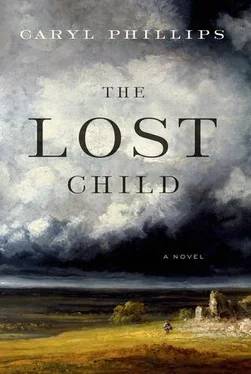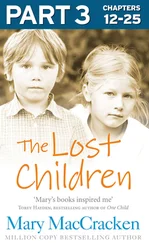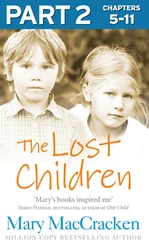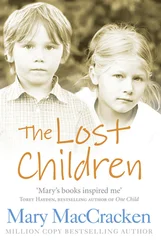“And could you please turn it down? You’ll wake him up.”
* * *
One early winter’s afternoon they both returned in silence from their unscheduled visit to the doctor’s surgery. The man confirmed that despite Monica’s slipping on a patch of black ice outside the tube station, everything seemed to be alright with the baby that she was carrying, and he dismissed them without making any further comment. While Monica implored Ben to take an afternoon nap in the cot to the side of their bed, Julius poured a tumbler of whisky and slumped onto the settee in a manner that let her know he would not be going out and speaking at a meeting tonight. Ben appeared to be settled now, so she edged her way to the sink and started to fill the kettle with water while making as little noise as possible. Having turned on the stove, she looked down at Julius.
“Don’t you sometimes think a television set would be nice?”
“I don’t think so.”
Of course, a friend would be a better alternative to a television set, and a part-time job would be a godsend, but she knew that with this erratic man she should tread carefully around the word “lonely.” She would find some other time to raise the idea of her perhaps going back to university, for clearly this was not going to be an easy conversation.
“I don’t mean now, Julius. Look at us, we’ve got to get out of this room first and get ourselves a bigger place. I just mean later on. In time.”
“Later on when?” He slammed the whisky down on the coffee table and woke up Ben, who began to cry. “I’m doing the best I can.”
He stood now, the toes of his bare feet curling into the mangy rug and his face radiating anger, the source of which was not understandable to her. She picked up her son and tried her best to comfort him in her arms, but she continued to stare directly at Julius. After a minute or so her agitated husband began to finally relax, and he reached behind himself in order that he might master his balance as he sank back down onto the settee.
“For Christ’s sake, Monica, why do you insist on provoking me in this way?”
She continued to rock Ben in her arms and waited for him to finish.
“You know I couldn’t give a fig about the television set, don’t you?”
“I know.” She paused. “I know.”
“We don’t have the money for another child, you know that, don’t you?”
“I know.”
When their second son was born, Monica considered asking Julius if he minded if they named him William, after her favourite poet. However, they left the understaffed local hospital and returned to their disheartening bed-sitting-room with their new child still nameless.
* * *
Outside, the snow continued to fall gently, while two men sat in the window seats of the café nursing cups of tea that had long ago gone cold. She looked down on them and could see that one man had on a khaki jacket that looked like part of an army uniform, but nothing else about him brought to mind the notion that he might have any familiarity with military discipline. His short hair was uncombed, his shoulders were hunched, and occasionally he would slap his gloved hands together and then tuck them back into his armpits. His friend was swaddled in an overcoat that was clearly two or three sizes too big, and his face was half hidden beneath a trilby hat that was set at an improbably jaunty angle. An overstuffed shopping bag occupied the third chair, but it wasn’t immediately apparent to which man it belonged. The ashtray was full and looked as if it hadn’t been emptied all day, but it was pushed to one side, for neither man showed any inclination to smoke. Without warning, as though receiving a prompt from the wings, the man in the overcoat produced a folded newspaper from inside his coat and with a pencil began to circle various items before tossing the newspaper down in front of his friend, who displayed no interest in the offering. The gesture seemed designed to goad his companion to please look for a job — or perhaps a room — but the colder man hugged himself and stared out of the window, where a light drizzle had begun to fall and was already making an icy grey soup of the thin layer of snow that had settled overnight. The more generous man stood and slowly buttoned up his overcoat. As he left the café, it became clear that the shopping bag belonged to the military man, whose head didn’t move, but whose cold, rheumy eyes followed the tall man out onto the street and then tracked him as he flicked up his collar and began to trudge away from the café.
Standing by the bedroom window and looking down at the two men in the café had kept Monica busy for most of the past hour while her two boys slept peacefully on the bed behind her. Last year, after three problematic years in the cramped bed-sitting-room, she and Julius had finally scrambled together enough money to move one floor up into a one-bedroom flat that offered the same view over the café, but this time from both a bedroom window and a window in the living room. At night the two boys slept head to toe on the settee in the living room, but during the day, if they needed a nap, she let them lie out on the double bed. She sometimes worried that the acrid fumes from the paraffin heater might be harmful, but she assumed not or somebody would have written an article in one of the posh Sunday papers, which was most likely how she would know. She moved across to the bed and looked down at the boys, but they both seemed alright. She remained unconvinced that she would ever grow comfortably into the role of a mother, for the speed and ease with which her body had dealt with pregnancy suggested a lack of any real engagement with the process. And of course, part of defining herself as a mother involved watching and appreciating the role of the father, but not only did Julius continue to behave indifferently towards his wife, these days he also appeared to be increasingly removed from his two children.
Monica passed quietly into the living room and felt sure that the two men seated on the settee would have some understanding of the scene in the café, but she also knew they would have nothing to say to her on the matter. Were she to try and describe the situation, Julius might glare to let her know that she should be quiet, but the other man would most likely be insulted that a relatively young Englishwoman was addressing him, and of course, offending this man might make life difficult for them all. Their talks were not going well, this much she knew, but Lloyd Samuels seemed unconcerned. There was an air of quiet arrogance about him that didn’t match up with what Julius had told her when he returned from the trip he had made back home. His supposedly charming and charismatic school friend had funded Julius to fly out and deliver a full report on the situation in England, but the conceited man sitting in their living room was definitely smaller and more rotund than the man Julius had described. Furthermore, Julius never mentioned Lloyd Samuels’s insecurities, but from the moment she had opened the door and welcomed him into their flat she could see vulnerability in his darting eyes.
Once again the snow was falling, but this time it was not settling. The café was closing up, but the semiuniformed man was still sitting at the table with the two discarded cups in front of him. He must have picked up the newspaper, for it was now jutting out of the top of the shopping bag like a chimney pot that was about to topple over. Julius stood up and snapped on the lights, which made it challenging to see out, and she realized that the few hardy souls wandering the snowy streets could now look up and enjoy the theatre of their lives. As she pushed back the sleeves of her cardigan, her full attention returned to the window, where she found herself longing to see a flower or a tree. Gardens were the missing factor, and she thought of her childhood friend Hester Greenwell, whose family had a large spread of a garden behind their detached stone house, but her father was the local doctor, so such extravagance was to be expected. Her own father always seemed uncomfortable whenever she went around to play at Hester’s, making it clear that she couldn’t stay for tea because Hester’s mother insisted on calling it supper. “Invite her over to our place,” he said. “After all, we’ve got a garden too.” And so Hester started to visit Monica’s house, and more often than not she would stay for tea.
Читать дальше












